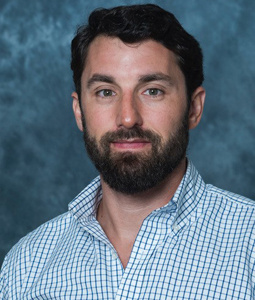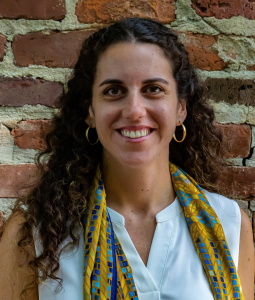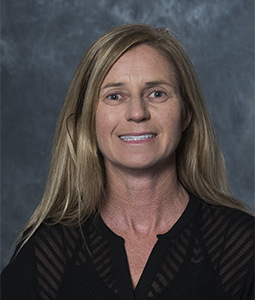Electronic Health
Records Core
About the Core
Electronic Health Records (EHR) data includes a rich individualized patient information for clinical, translational, and patient-centered outcomes research. The EHR core will be positioned to establish a virtual campus -wide Big Data Health Science Consortium which will serve as an outreach and communication portal for the center. The EHR core will work closely with the other cores to develop, support, and disseminate accessible and efficient methods and tools for advanced data management, integration, analysis, and visualization. The EHR Core will be co-led by Drs. Nick Patel and Jiajia Zhang and core members hold strong expertise in clinical medicine, information technology, computer sciences, and biostatistics.
Professional Development
The establishment of BDHSC will enable us to share best practices and new knowledge and provide timely advice for those interested in Big Data sciences, it will also promote inter-disciplinary conversation across the university, even among colleagues that are not typically data inclined. We will achieve this objective through coordination/integration of existing Big Data expertise and resources on campus, as well as provision of training and consultation to faculty, assisting faculty with publications and extramural grants applications.
Academic Training
In response to the nationwide talent gap in Big Data science and to improve the national visibility and leadership of USC in developing the next generation of Big Data health science experts, BDHSC will provide both curriculum-based and research-based training to faculty and students wishing to pursue a career in Big Data health science.
Methodological Advances
Next generation data analytics (such as deep learning, artificial intelligence, virtual-reality, data mining and visual analytics technologies) are among the key driving forces that are potentially transformative for healthcare research. The ability to stay on the frontier of Big Data methodology and technology is key for USC to achieve national leadership in this area. BDHSC will promote cutting-edge research and discovery in the areas of Big Data analytics and innovations.
Membership
Jiajia Zhang, Ph.D.
Core Director
Dr. Jiajia Zhang’s main research interests focus on investigating the association between the mortality/incidence of a certain disease with its potential risk factors using survival analysis. Specifically, her methodological research interests include investigating advanced survival models; such as the mixture cure model, spatial survival model, frailty model, and linear transformation model.
Jason DeBacker, Ph.D.
Core Member
Dr. Jason M. DeBacker’s research interests lie in the areas of public finance and macroeconomics. He has published papers on these topics in the Journal of Financial Economics, the Journal of Law and Economics, the Journal of Public Economics, the Brookings Papers on Economic Activity and other outlets. From 2009 to 2012, he worked as a financial economist in the Office of Tax Analysis at the U.S. Department of the Treasury.
Pamela Bailey, DO, MPH
Core Member
Pamela Bailey’s research interests include antimicrobial stewardship (ASP), infection prevention (IP), and she does DHEC and CDC grant sponsored work regarding education in those areas, specifically addressing urban/rural disparities in ASP and IP in SC.
Dana DeHart, Ph.D.
Core Member
DeHart’s publications focus on violence and victimization, particularly pathways to crime and the incarceration of women and girls. She has recently co-authored book chapters and scientific journal articles on topics including, the role of substance abuse and mental health in female offending, the impact of incarceration on prisoners and their families, and developing a taxonomy of offenders who solicit children online. Her publications have been featured in scholarly journals, such as Psychology of Women Quarterly, Psychiatric Services, Criminal Justice & Behavior, and Prevention Science.

Daping Fan, Ph.D.
Core Member
Fan’s current research interests focus on cancer immunology; immunotherapy; the tumor microenvironment; natural compounds; inflammation; breast cancer; atherosclerosis.
Peiyin Hung, Ph.D.
Core Member
Dr. Hung’s primary research interests include rural health disparity, quality of care, spatial access to health services, and women health. Her research focuses on geographic disparities in hospital services and quality of health care in the national, state, and institutional levels (e.g. hospital, nursing home, etc.). Dr. Hung specializes in quantitative methods for health services research, using surveys and administrative data, along with econometrics to understand the effects of organizational structure, clinical, and policy intervention.
Leila Larson, Ph.D., MPH
Core Member
Dr. Larson’s work in the fields of nutrition and global health has three foci: 1) developing and evaluating integrated interventions to improve early child development and child health in resource-limited settings, 2) understanding the intersection of prenatal and postnatal exposures (e.g., climate change, malnutrition, infection, and microbial dysbiosis) on maternal and child health and development, and 3) improving the measurement of nutritional biomarkers and diagnosis of nutritional deficiencies in population surveys. She has worked on several nutrition trials in pregnancy and childhood in countries such as Liberia, India, Bangladesh, and Malaw.
Elizabeth Angela Murphy, Ph.D.
Core Member
Dr. Angela Murphy is committed to a health- related research career as evident by her 40 peer-reviewed journal articles in the area of complementary and alternative (CAM) treatment approaches to infection, inflammation and cancer. Her long-term career goal is to significantly contribute to expanding global knowledge in CAM treatments for cancer. This will largely involve sustaining an independent line of translational research, engaging in cutting edge techniques, publishing in high impact journals, presentations at meetings, training students and junior faculty, technology transfer and drug discovery.
S. Scott Sutton, Pharm.D.
Core Member
S. Scott Sutton, Pharm.D., is a Professor and Chair at the College of Pharmacy in the Department of Clinical Pharmacy and Outcomes Sciences. Additionally, he is a clinical researcher at the Dorn Research Institute / Veterans Affairs Medical Center and McGraw Hill Naplex author and pharmacy editor.
Chengwen Teng, Pharm.D., Ph.D.
Core Member
Currently, Chengwen is working on the identification of new adverse drug reactions, drug-drug interactions, and drug-disease interactions, and is comparing drug safety and effectiveness profiles using spontaneous reporting systems, electronic health records, and other databases. In addition to health outcomes research, Chengwen had research experience in pharmacology, immunology, and biochemistry.

Song Wang, Ph.D.
Core Member
Professor Wang’s research interests include computer vision, medical imaging, and machine learning. Recently, his research is focused on developing computational algorithms and software tools for understanding the natural images or image sequences by extracting perceptually salient structures, constructing statistical models for quantifying the nonrigid shape variation of anatomic structures, automatically and interactively segmenting structures of interest from various MR, CT, and microscopic images, detecting and recognizing objects of interest from images, and detecting and recognizing human activities in videos.
Yuan Wang, Ph.D., MPhil
Core Member
Dr. Wang’s current research is focused on mathematical and statistical modeling of data from electroencephalography (EEG), functional magnetic resonance imaging (fMRI) and diffusion tensor imaging (DTI) of clinical groups with brain disorders such as epilepsy. The main research topics that interest her are in joint modeling of structural and functional neuroimaging data, topological signal processing of neuroimaging time series, and topological brain network analysis.
Sharon Beth Weissman, M.D.
Core Member
Sharon Beth Weissman, MD, is division chief of infectious diseases at Prisma Health in Columbia, South Carolina, where she also serves as a clinical professor of internal medicine at the University of South Carolina School of Medicine. She previously served as program director for the Prisma Health–Midlands Infectious Disease Fellowship Program. Dr. Weissman received her medical degree from Columbia University in New York City and completed her residency at Beth Israel Hospital in Boston. After her residency, she completed a fellowship in infectious diseases at Beth Israel Hospital-Brigham and Women’s Hospital, also in Boston. She previously held positions at Case Western Reserve University in Cleveland, where she was director of the HIV/Infectious Disease Clinic at the Louis Stoke Cleveland VAMC, and Yale University School of Medicine in New Haven, Connecticut, where she also served as director of HIV services at the Hospital of Saint Raphael.
Xueying Yang, Ph.D.
Core Member
Xueying Yang is a research assistant professor in the Department of Health Promotion, Education, and Behavior and with the South Carolina SmartState Center for Healthcare Quality. Her research interests focus on the health promotion of biomedical preventions for HIV infection (e.g. Antiretroviral Therapy (ART), Pre-exposure Prophylaxis (PreP)) through application of social and behavioral sciences.












